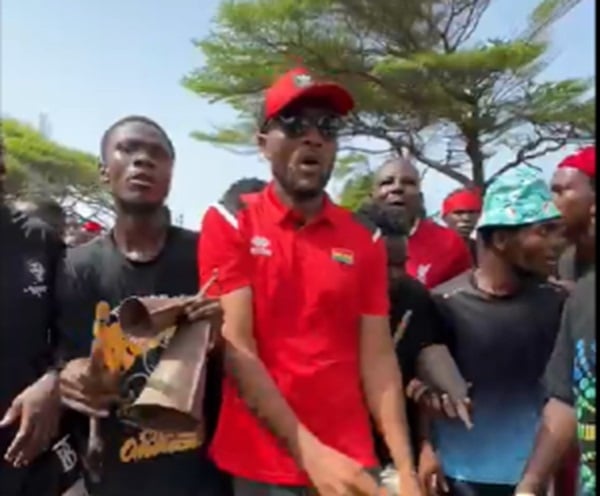The “Save the Judiciary Demo” on May 5, 2025, marked a significant turning point in Ghana’s political landscape. Led by Weija-Gbawe MP Jerry Ahmed Shaib, the demonstration saw a powerful coalition of opposition parties – the New Patriotic Party (NPP), Liberal Party of Ghana (LPG), National Democratic Party (NDP), and People’s National Party (PNP) – uniting against the suspension of Chief Justice Gertrude Torkornoo. The protest resonated with widespread public concern over perceived political interference in the judiciary, raising alarms about the potential erosion of judicial independence, a cornerstone of Ghana’s democratic framework. The demonstrators argued that the suspension threatened the integrity of the judiciary and set a dangerous precedent for future political maneuvering. Their collective voice reflected a shared anxiety about the fragility of democratic institutions and the importance of upholding the rule of law.
The government’s justification for the suspension rested on the establishment of a prima facie case against Chief Justice Torkornoo based on three separate petitions. While the details of these petitions remain undisclosed, the government’s action triggered immediate constitutional procedures. In accordance with Article 144(6) of the 1992 Constitution, Justice Paul Baffoe-Bonnie, the most senior member of the Supreme Court, was appointed Acting Chief Justice. This swift transition underscored the constitutional mechanisms in place to ensure continuity in the judicial system, even amidst controversy. However, the appointment did little to quell the rising tide of public dissent and the opposition’s concerns about the underlying motivations behind the suspension.
The coalition of political parties spearheading the demonstration took their concerns directly to Parliament, submitting a formal petition urging legislative intervention. Their appeal to lawmakers represented a crucial attempt to utilize constitutional checks and balances to address the perceived executive overreach. The petition called on Parliament to persuade President to rescind the suspension, highlighting the potential long-term damage to Ghana’s democratic reputation. The opposition’s strategy aimed to leverage the legislative branch’s power to scrutinize executive actions and safeguard the independence of the judiciary, a critical component of a functioning democracy.
The events surrounding Chief Justice Torkornoo’s suspension unfolded against a backdrop of growing public discourse on the balance of power between the executive and judicial branches. The demonstration itself symbolized a broader public unease about potential encroachments on judicial autonomy. The opposition parties’ united front underscored the seriousness of the situation, suggesting a shared belief that the suspension represented a significant threat to the integrity of Ghana’s democratic institutions. The public outcry and the subsequent petition to Parliament underscored the importance of public engagement in safeguarding democratic principles and holding elected officials accountable.
The “Save the Judiciary Demo” transcended a simple protest; it became a focal point for a broader national conversation about the health of Ghana’s democracy. The coalition’s decision to involve Parliament signaled a strategic move to engage multiple branches of government in addressing the perceived threat to judicial independence. The unfolding events have put the spotlight on the delicate balance between different branches of government and the importance of maintaining clear boundaries to protect the integrity of each institution.
The aftermath of the demonstration and the parliamentary petition remains to be seen. The government’s response to the growing pressure, both from the public and the opposition, will be a crucial indicator of its commitment to democratic principles. The events of May 5, 2025, have undoubtedly left a mark on Ghana’s political landscape, raising critical questions about the future of judicial independence and the role of citizen engagement in safeguarding democratic values. The outcome of this power struggle will have significant implications for the future of Ghana’s governance and the public’s trust in its institutions.


